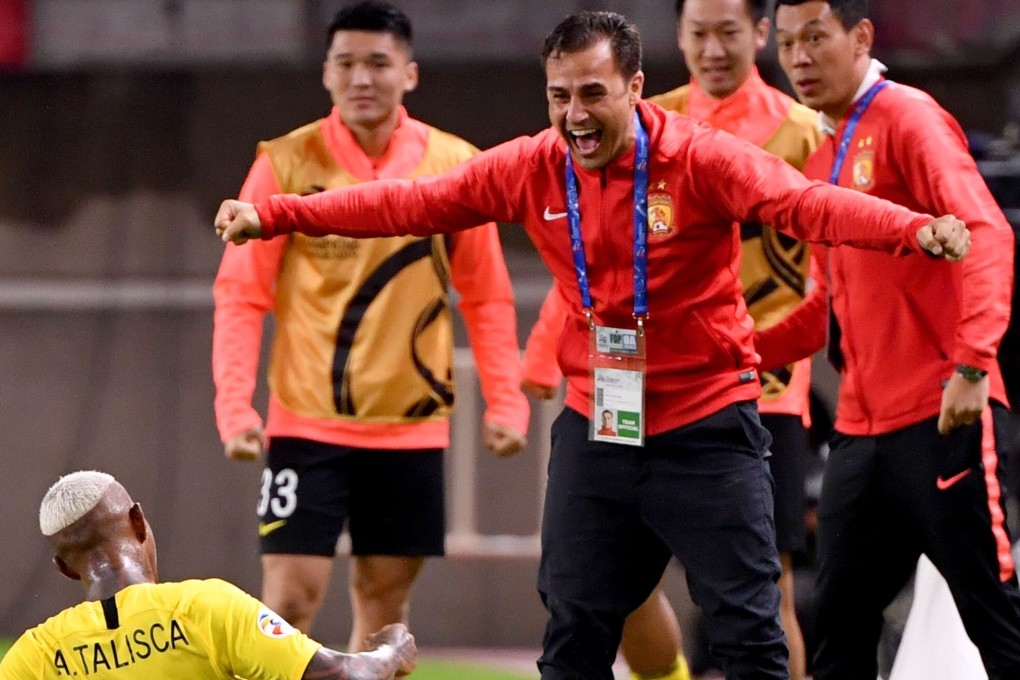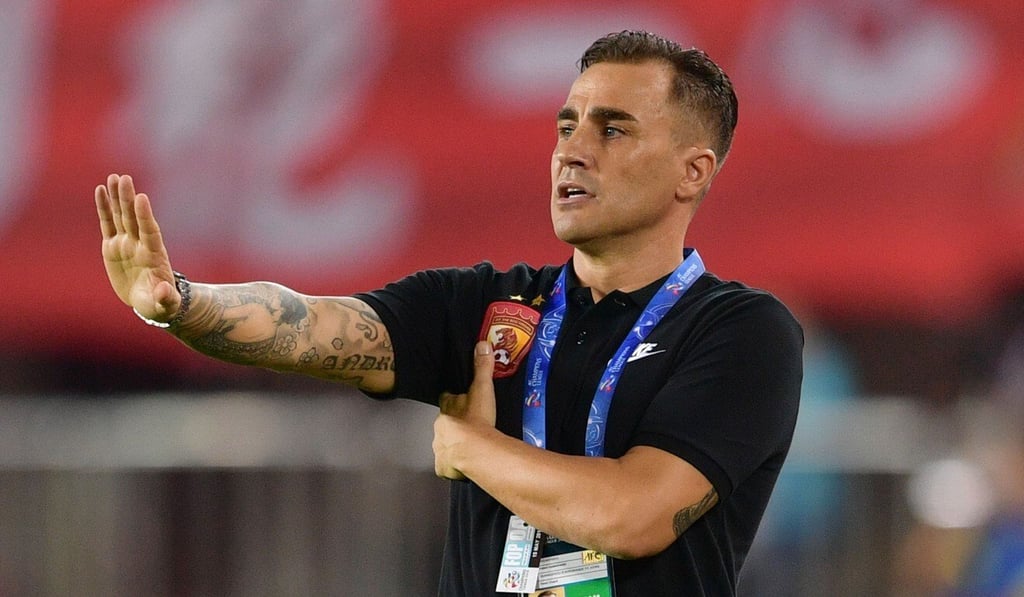Fabio Cannavaro says Chinese Super League was high quality, ‘but things changed’
- Cannavaro – who says he gave up US$27.9m to leave Guangzhou FC – rues loss of foreign stars from CSL
- Former China national team boss Marcello Lippi warns that country is not ready to host World Cup until team is competitive

Former Guangzhou Evergrande and China national team bosses Fabio Cannavaro and Marcello Lippi have bemoaned the state of Chinese football in recent interviews.
Cannavaro, who left the Guangzhou side last week, spoke to Tencent Sports in a Chinese Super League exit interview, in which the Italian said that he had given up 15 months of salary and bonuses worth up to US$27.9 million to leave the club.
Guangzhou FC – as the club are known since a league rule banned sponsors in team names – are one of a number of clubs undergoing financial crises, theirs stemming from the situation at China Evergrande Group. Last season’s champions Jiangsu FC folded before this season amid financial trouble at owners Suning.
“The CSL was seen as an attractive, quality league back in 2017-18,” said the Fifa World Cup winner, who arrived in China to coach in 2014.

“But then things changed. Clubs were requested to send more young players to the field. Some of these youngsters were not good enough to play in the CSL, but managers had to put them in the games – even for only a few minutes – because that’s the rule of the league.